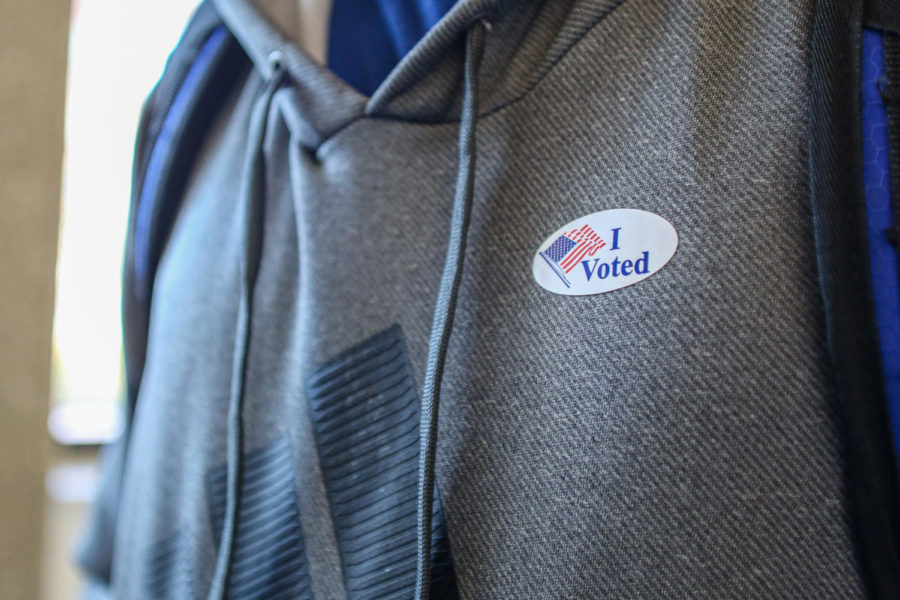Brown: Contraceptive legislation doesn’t violate religion
December 6, 2013
The Affordable Care Act has many opponents for many reasons. If it seems as though the issue is being hashed and rehashed ad nauseam, that is only because it is. As the signature legislation of our current president, the health care law has become a source of division among our government and acts in many instances as a representation of our political differences.
Not only does the act symbolize theoretical policy disputes, there are many specific portions of the law that have created serious discussion on their own. One of these portions is the so-called birth control mandate that has been stirring up controversy for years now.
At the heart of the issue, two conflicting interests can be found: the interest in making contraceptives available to women receiving workplace insurance and the interest in ensuring the religious liberties of business owners.
The government’s interest in making sure there is access to birth control is not held by all as a positive concern. There have certainly been less-than-informed arguments thrown around about how granting access to birth control is tantamount to paying women for sex, but not all protestations are so laughably ignorant.
Depending on how one views contraceptives, it can be entirely reasonable to claim that their purchase should not be covered by an employer. Here on a college campus, many of us likely view birth control in a positive way. It not only leads to far fewer unplanned pregnancies, but depending on the type of contraception, it can provide a host of other benefits to women.
These benefits include more regulated and predictable menstrual cycles, decreased mood and emotion alterations from hormone spikes, and a reduced probability of developing certain types of cancer.
These are all legitimate health concerns, but birth control can often be thought of as just that — merely a way to control pregnancy. If this is the view one holds of contraceptives, providing greater availability might appear to be saying that it is OK to have lots of sex, as long as you don’t get pregnant — a dubious position for the government to take at the very least.
Beyond that, a government mandate that employers must provide health insurance including contraceptives shows an inherent support for contraceptives themselves, which are not accepted by all. Many religious faiths instruct their followers that not only is premarital and recreational intercourse wrong but also that contraceptives are bad in and of themselves.
Those religious views cannot be swept under the rug just because we may not all share them. It is exceedingly important that we, as a nation that strives to keep church and state separate, should not force anyone to violate a legitimate religious belief. Exceptions may still occur when an overwhelming state interest is at stake, but these exclusions are few and far between.
The Supreme Court of the United States agreed earlier this week to hear the cases of Hobby Lobby Stores Inc. and Conestoga Wood Specialties Corp. together, after the companies received conflicting rulings from lower courts. Both companies claim that forcing them to provide contraceptives — even in a roundabout way through insurance — violates the religious freedoms of their owners.
In order for any religious liberty to be violated, a right to that liberty must first be established. This is normally a very simple practice in the United States, as the First Amendment to our Constitution has been interpreted to grant a wide swath of religious freedoms.
The second part of proving a violation of a religious liberty is that the state action must affect the person who tries to express his or her rights. In the cases of Hobby Lobby and Conestoga Wood Specialties, this caveat runs into problems.
Both stores are incorporated businesses, legally distinct from their owners. The very purpose of incorporating is to ensure that what affects a business — such as a company’s financial woes or liability — does not affect the people running the operation.
The owners of a business may be extremely invested in their company and, depending upon the classification of their incorporation, may have greater or lower liability for their company, but this does not mean that the two can be treated as the same entity in a legal setting.
Since the owners of these businesses went to the trouble of filing for incorporation and have since reaped the benefits of that process, they should not be able to claim that actions affecting their company are violations of their personal rights.
It would surely be unfair to mandate that individuals who have a religious objection to contraceptives provide them, just as it would be inappropriate to force organizations specifically designated as religious to provide them.
These are not the issues at hand, however. An incorporated, for-profit organization has no business claiming to have specific religious beliefs, which is exactly what Hobby Lobby and Conestoga Wood Specialties are doing.
Individual religious liberties are extremely important, but the birth control mandate is not violating any of them.







